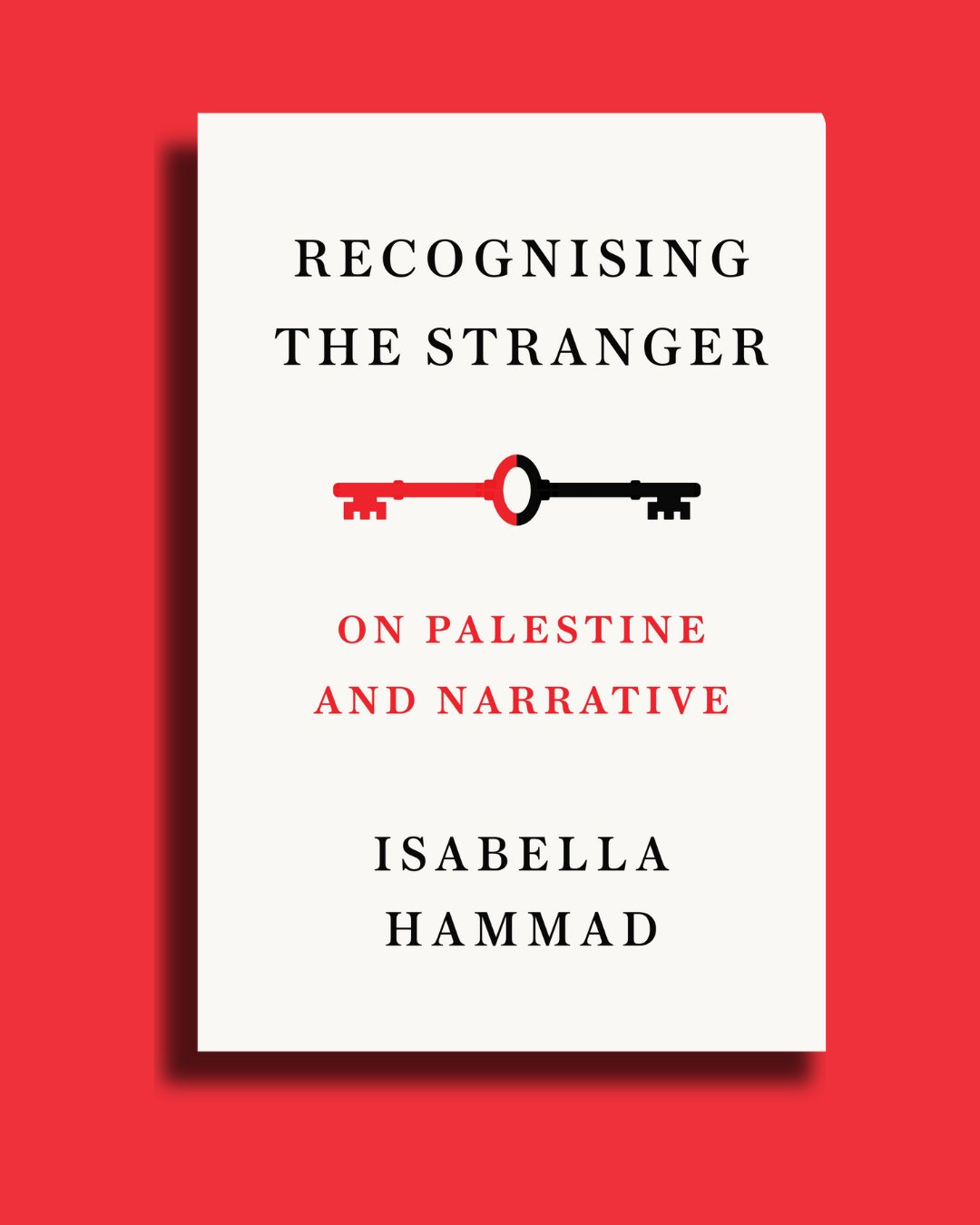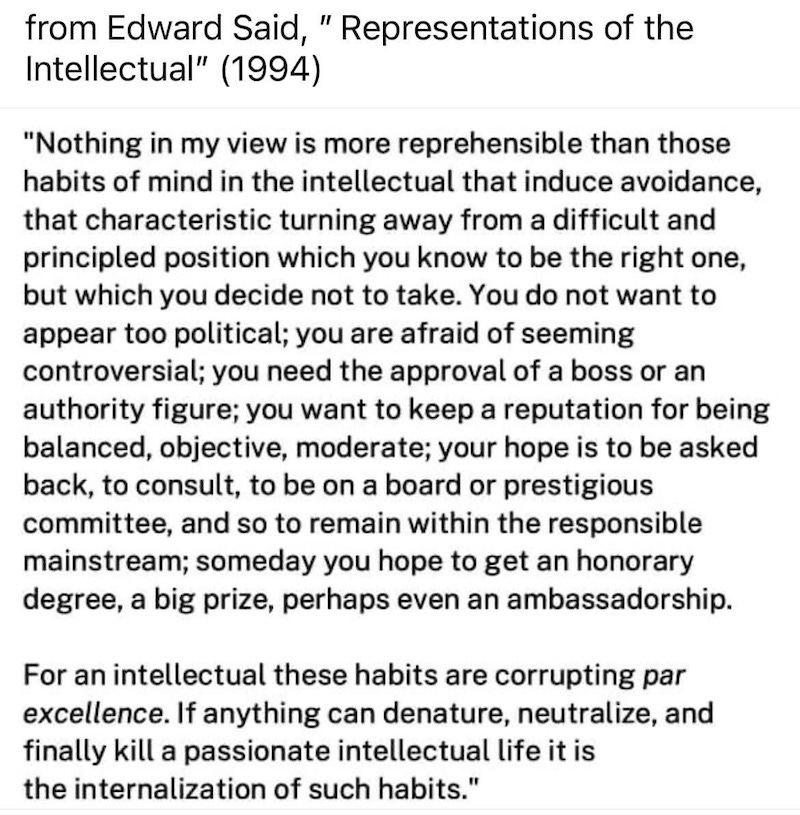3D Roundup: An Indefinite Occupation?
Featuring Edward Said, Isabella Hammad, Ilan Pappé and Simone Zimmerman. With deep dives into settler extremism on the West Bank and Israel's dark plans for Gaza.

This is the second edition of the 3D roundup, a special section of The Rift newsletter where I share interesting things to read, watch and listen to. Don’t miss any future roundups:
1️⃣ Read
A deeply troubling piece of investigative journalism by the Washington Post draws on satellite imagery to show how the Israeli government—despite official statements to the contrary—is already laying the groundwork for an indefinite military occupation of the Gaza Strip:
“Israeli troops are fortifying a strategic corridor that carves Gaza in two, building bases, taking over civilian structures and razing homes, according to satellite imagery and other visual evidence — an effort that military analysts and Israeli experts say is part of a large-scale project to reshape the Strip and entrench the Israeli military presence there.”
Read the full piece here.
By creating these new “facts on the ground,” Israel appears to be eyeing a dystopian transformation of the Palestinian enclave. The details of Netanyahu’s dark vision for the future of Gaza are slowly beginning to seep out. Adam Tooze has the full story in his Chartbook newsletter:
I have to admit, when I first saw the image, I thought it must be a hoax.
Skyscrapers, solar power plants, container ships, oil rigs off shore - a vision of idealized urban and rural settlement, generated by AI, picturing a wealthy, intensively -managed city state - think Singapore or Abu Dhabi - but with a vaguely familiar geography.
No it is not a hoax. This is the Gaza strip in 2035, as envisioned by the Office of Israeli Prime Minister of Netanyahu, eight months into a brutal war of retaliation against the Hamas attack of October 7th. On the land cleared by the displacement of millions and the killing of over 35,000 Palestinians, on a densely populated urban space that the IDF has reduced to rubble and famine, Netanyahu’s planners and their AI graphics imagine a 141 square mile free trade zone. This would bracket Gaza between the El-Arish Port to Gaza’s south in Egypt’s Sinai Peninsula and Sderot, an Israeli city north of Gaza.
First circulated internally in December 2023, the Israeli government went public with its long-range plans in early May 2024, as it faced pressure to spell out the end game. What it envisions is not the kind of the emergency reconstruction prepared by the UN, which right now is focused on a decade-long timeline for clearing unexploded ordinance and 37 millions of tons of rubble, costed to the tune of $40–50 billion. Netanyahu’s Gaza 2035 is a plan, to complete the erasure of Gaza. In it place the Israeli government envisions a mega-rich, clone of a globalized commercial and industrial city, somewhere between Chicago - what historian William Cronon described as Nature’s Metropolis - and Dubai.
Read the full post here.
It’s not just Gaza: in the West Bank, too, Israeli settlers are actively trying to create new “facts on the ground.” The New York Times Magazine has a long essay on the extremist settlers who have taken over Israel: “After 50 years of crime without punishment, in many ways the violent settlers and the state have become one.”
Many of the people we interviewed, some speaking anonymously, some speaking publicly for the first time, offered an account not only of Jewish violence against Palestinians dating back decades but also of an Israeli state that has systematically and increasingly ignored that violence. It is an account of a sometimes criminal nationalistic movement that has been allowed to operate with impunity and gradually move from the fringes to the mainstream of Israeli society. It is an account of how voices within the government that objected to the condoning of settler violence were silenced and discredited. And it is a blunt account, told for the first time by Israeli officials themselves, of how the occupation came to threaten the integrity of their country’s democracy.
Read the full piece here.
At the same time, there are also countervailing forces that will make a permanent Israeli occupation much more difficult in the long run. One sign of this is the recognition of the State of Palestine by Ireland, Spain and Norway. The NYT has called it “a sharp rebuke to Israel”:
If more of their neighbors follow their lead, the European Union could become a major counterweight to the American position that Palestinian statehood should result only from a negotiated settlement with Israel. That would deepen the rift between Europe and Israel.
Combined with the recent move by the ICC chief prosecutor in The Hague to seek arrest warrants for Netanyahu et al., these developments are already causing some anxiety in the US foreign policy establishment:
“We certainly have seen a growing chorus of voices, including voices that had previously been in support of Israel, drift in another direction,” Jake Sullivan, President Biden’s national security adviser, said at a news conference. “That is of concern to us because we do not believe that contributes to Israel’s long-term security or vitality.”
Read the full piece here.
Here, the generational shift that I mentioned in my first post becomes all the more relevant. As I wrote in “The Students Are Right”:
For 75 years, Israeli leaders have been able to draw on the support of their enablers in the West to continue the illegal occupation of the Palestinian territories. But now the wheels of time are slowly wasting away the ranks of their Western supporters. Today, less than a quarter of Americans under the age of 30 still has a favorable view of the Israeli government, compared to half of those over the age of 50. Soon critics of the occupation will form the overwhelming majority. Israel’s system of apartheid is living on borrowed time.
Check out the Pew poll here.
Are we living through a turning point in history? This is the question addressed by the phenomenal British-Palestinian author Isabella Hammad in her forthcoming book, published by Fern Press this fall:
Award-winning author of The Parisian and Enter Ghost Isabella Hammad delivered the Edward W. Said Lecture at Columbia University nine days before 7 October 2023. The text of Hammad’s seminal speech and her afterword written in the early weeks of 2024 together make up a searing appraisal of the war on Palestine during what feels like a turning point in the narrative of human history.
Moving and erudite, Hammad writes from within the moment, shedding light on the Palestinian struggle for freedom. Recognising the Stranger is a brilliant melding of literary and cultural analysis by one of Granta’s Best of Young British Novelists and a foremost writer of fiction in the world today.
You can pre-order the book here.
Here’s a taste from Hammad’s Edward W. Said lecture at Columbia:
When I was wondering what to talk about in this lecture, I started thinking about Edward Said and lateness as a point of departure. Then I went back to his early book Beginnings—and then I decided after all that I preferred to start in the middle, and more specifically that I wanted to talk about the middle of narratives—their turning points, which I’ll relate to the shifting narrative shape of the Palestinian struggle in its global context.
It’s difficult, in life, to pinpoint with any real sense of confidence where a turning point is located. As Said said of beginnings—whether of texts, epochs, or ideas—the turning point is likewise a human construction, something we identify in retrospect. We look back on our lives, or on the course of history, and according to the shape of the particular narrative we are telling we can say—ah, see, that is how the course of the story developed; and that was a key node when everything changed. We can see these moments quite clearly from the vantage of hindsight, we can assert the significance of past events with relative confidence. In the Bulgarian writer Georgi Gospodinov’s recent novel Time Shelter, the narrator notes that history becomes history only after the fact: “Most likely,” he says, speaking of the beginning of World War II: “1939 did not exist in 1939, there were just mornings when you woke up with a headache, uncertain and afraid.”
But if we cannot always know the significance of the moment in the moment, it is also true that our moment, the one in which we now live, feels like one of chronic “crisis”: political, economic, and climate crises besiege us, along with other existential crises posed by the exponential development of artificial intelligence, and the recurring nightmare of nuclear war. In narrative time, the crisis should suggest the encroachment of the end, even if, in real life, the end is a receding horizon. The flow of history always exceeds the narrative frames we impose on it. Generations continue to be born, and we experience neither total apocalypse nor a happily-ever-after with any collective meaning beyond the endings of individual lives. Yet this narrative sense remains with us, flickering like a ghost through the revisions of postmodernism: we hope for resolution, or at least we hope that retrospectively what felt like a crisis will turn out to have been a turning point.
Read the full lecture here.
And, finally, here’s a little piece of wisdom from Edward Said himself on the role of the intellectual (h/t to Moshik Temkin on Twitter):
2️⃣ Watch
The Israeli historian and dissident Ilan Pappé on why he’s hopeful for the future:
A nice interview with the US filmmaker and campaigner Simone Zimmerman on the shifting perspective on Israel among younger Jewish Americans:
And the trailer to Zimmerman’s timely new film, Israelism:
3️⃣ Listen
I’ve been listening to the excellent Empire podcast series by William Dalrymple and Anita Anand during some of my workouts lately. It offers fascinating and insightful perspectives on world history, starting with Dalrymple’s area of expertise (the British Empire in India) and gradually branching out from there to cover much of the globe.
There’s one episode featuring the Israeli historian Tom Segev about the deep historical origins of the Israeli occupation of Palestine that’s worth listening to. It shines a light on the role of the British Empire in laying the foundations for today’s bloodshed. As the British Jewish author and journalist Arthur Koestler once put it: “One nation solemnly promised to a second nation the country of a third.”
That’s it for this week! If you liked the 3D roundup and would like to keep receiving it in your inbox, you can sign up to The Rift newsletter or upgrade your subscription here:








